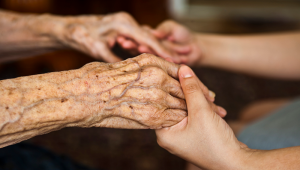The salary threshold, proposed in the government’s post-Brexit immigration white paper yesterday, could prevent lower paid health and social care professionals from EU countries coming to the UK, the Cavendish Coalition cautioned.
“The sector relies on lower paid – but hugely skilled - colleagues whose availability would be effectively cut off by a proposed salary threshold of £30,000 and with no special allowance like that recommended for seasonal agricultural workers”, Cavendish Coalition co-convenors Danny Mortimer, Nadra Ahmed and Sara Gorton said, in a joint statement.
“Either the government needs to fund wage increases or make special provision for health and care.”
A scheme for seasonal agricultural workers will run in 2019 “in recognition of the challenges facing that industry”.
The white paper document sets out the government’s immigration plans from 2021 - following the two-year transition period following the UK’s exit from the EU.
The £30,000 figure has proved controversial and government has said it will consult with businesses if this is the right threshold over the next year.
The factchecking charity Full Fact pointed out a junior doctor’s starting salary falls below the £30,000 mark.
As well as needing to meet a salary threshold, skilled workers will need a visa, which they could initially have for up to five-years.
The Cavendish Coalition was also concerned the visa proposals could discourage workers coming to the UK.
“We are extremely concerned whether the visa proposals in the immigration white paper will encourage the numbers of care staff social care needs to ensure that health and social care provision can be properly staffed by the skilled care staff it needs,” the co-convenors said.
They also felt any reduction in the social care workforce could have “knock-on effects to the population and wider economy”, with families having to take on more care responsibilities.
“People who are best cared for in their homes or in the community will need greater support from their families (putting strain on other areas of the labour market) as well as the NHS,” the co-convenors said.
In recognition that some UK employers have become “reliant” on lower skilled workers from the EU – particularly in social care and construction - the Home Office proposed a transitional measure whereby low-skilled workers will be allowed to come to the UK for up to a year until 2025.
Although, Simon Bottery, senior fellow for social care at the King’s Fund think-tank, expressed his concern on Twitter:
This is a very strange solution to #socialcare workforce problems being proposed in today's immigration white paper: short-term workers. Useful maybe for seasonal agriculture jobs - but for social care? Turnover is already too high and you need stability and consistency. pic.twitter.com/VPoy0c131z
— Simon Bottery (@blimeysimon) December 19, 2018
Mark Robinson, chief executive of public-sector procurement body Scape Group, said: “Without enough construction workers it will not be possible to build crucial new homes and infrastructure at the rate the UK needs. The government could ease the minds of the industry and classify construction workers as highly skilled.”
Unveiling the white paper, Home Secretary Sajid Javid, said: “[These] proposals are the biggest change to our immigration system in a generation.
“We are taking a skills-based approach to ensure we can attract the brightest and best migrants to the UK.
“These measures will boost our economy and benefit the British people.”
A recent report by the Cavendish Coalition revealed the NHS could be short of 51,000 nurses by the end of the Brexit transition period.
It was recently announced that the social care green paper would be delayed until the new year.
Other points from the white paper
- Ministers will scrap the current cap on the number of skilled workers, such as doctors or engineers from the EU and elsewhere, but will apply a number of other conditions
- Those currently working in the UK will retain their current rights after the end of the post-Brexit implementation period in 2021
- Tourists will be allowed to spend six months in the UK and the government “does not intend” to make visitors from EU member states obtain a visa before coming.











